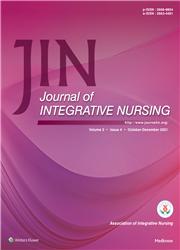糖尿病患者白内障摘除术的自我管理
Q4 Nursing
引用次数: 0
摘要
背景:糖尿病相关性白内障摘除术是恢复完全视力所需的小手术。公认的延迟或阻止完全视力恢复的因素之一是管理不善,而这种管理大多是由患者自己进行的。目的:了解奥松州两家三级医院糖尿病患者白内障摘出术后自我管理知识。方法:采用横断面描述性设计,对奥松州就诊并随访的97例接受白内障摘除手术的糖尿病患者进行研究。采用自结构化问卷进行数据收集。结果:被调查对象对合理饮食(56.7%)、预防损伤风险(57.5%)、预防感染风险(50.9%)、白内障摘出术后滴眼液给药技术(60.8%)的了解程度一般,对白内障摘出术后随访指征的了解程度为74.7%,低于预期知识水平。结论:针对糖尿病白内障手术患者的特殊需要,护士应开展密集、全面的教育活动。护士还需要实施检查表的使用,这将加强学习,提高患者对白内障摘出后自我管理的理解。本文章由计算机程序翻译,如有差异,请以英文原文为准。
Self-management of cataract extraction among diabetes patients
Background: Diabetes-related cataract extraction is a minor surgery required to regain full vision. One of the recognized factors that can delay or prevent full-vision recovery is poor management, and most of this management is being carried out by patients themselves. Objective: This study aimed to assess the knowledge of diabetes patients on self-management after cataract extraction in two tertiary hospitals in Osun State. Methods: A cross-sectional descriptive design was conducted among 97 diabetes patients who underwent cataract extraction and were attending clinics and follow-up visits in Osun State. A self-structured questionnaire was used for data collection. Results: Moderate knowledge was found among the participants on an appropriate diet (56.7%), prevention of injury risk (57.5%), prevention of infection risk (50.9%), and low knowledge on the technique of administration of eye drop (60.8%) after cataract extraction, whereas 74.7% of the total respondents were knowledgeable on the indication for follow-up visit after cataract extraction, these results were found to be below the expected knowledge level. Conclusion: An intensive and comprehensive educational initiative by nurses should be tailored to meet the specific needs of diabetes patients with cataract surgery. Nurses also need to implement the use of checklist which will enhance learning and improve patient understanding of self-management after cataract extraction.
求助全文
通过发布文献求助,成功后即可免费获取论文全文。
去求助
来源期刊

Journal of Integrative Nursing
Nursing-General Nursing
CiteScore
0.40
自引率
0.00%
发文量
3
审稿时长
17 weeks
 求助内容:
求助内容: 应助结果提醒方式:
应助结果提醒方式:


